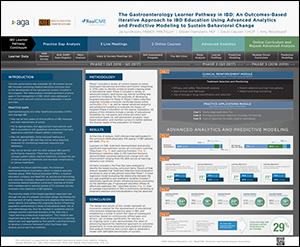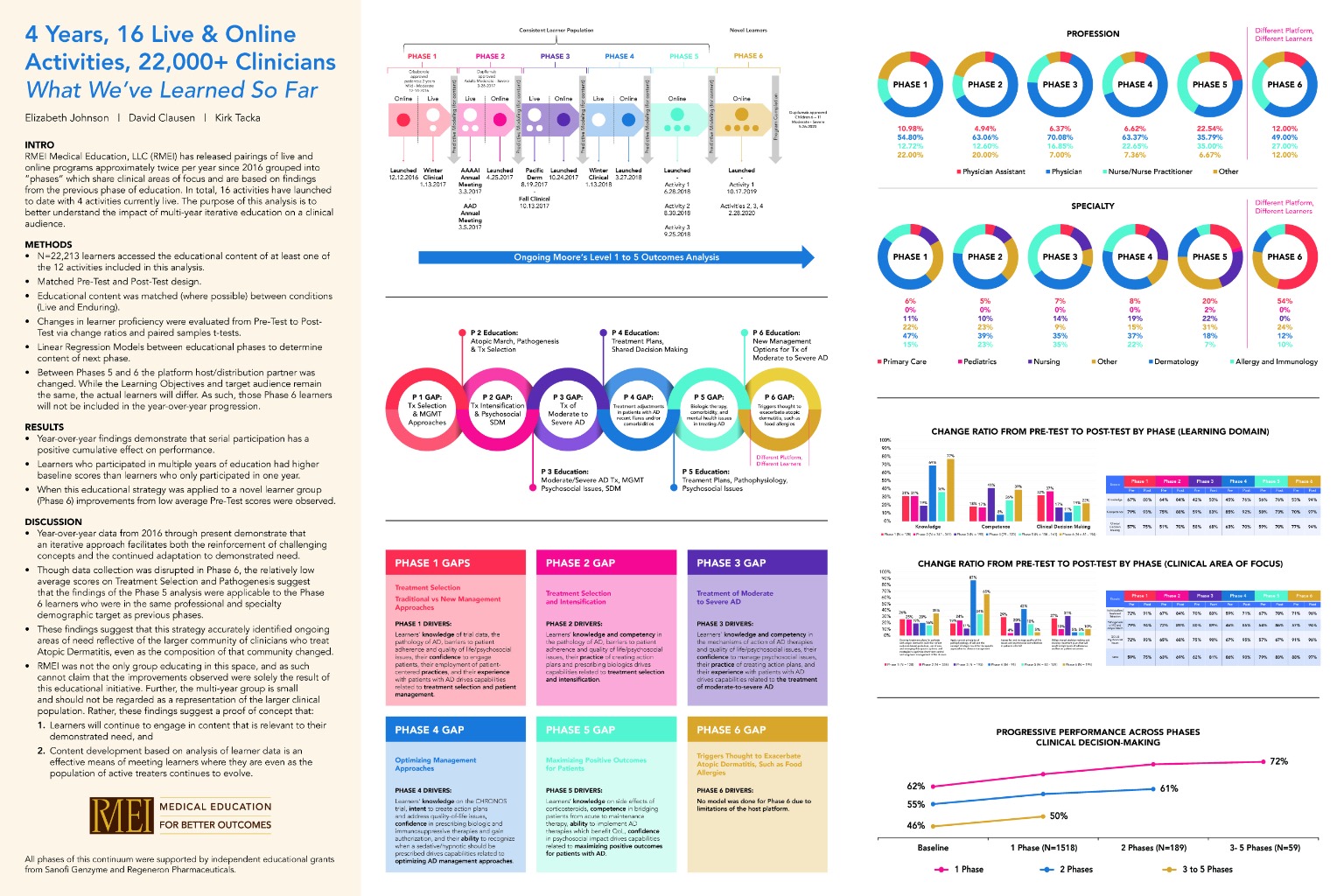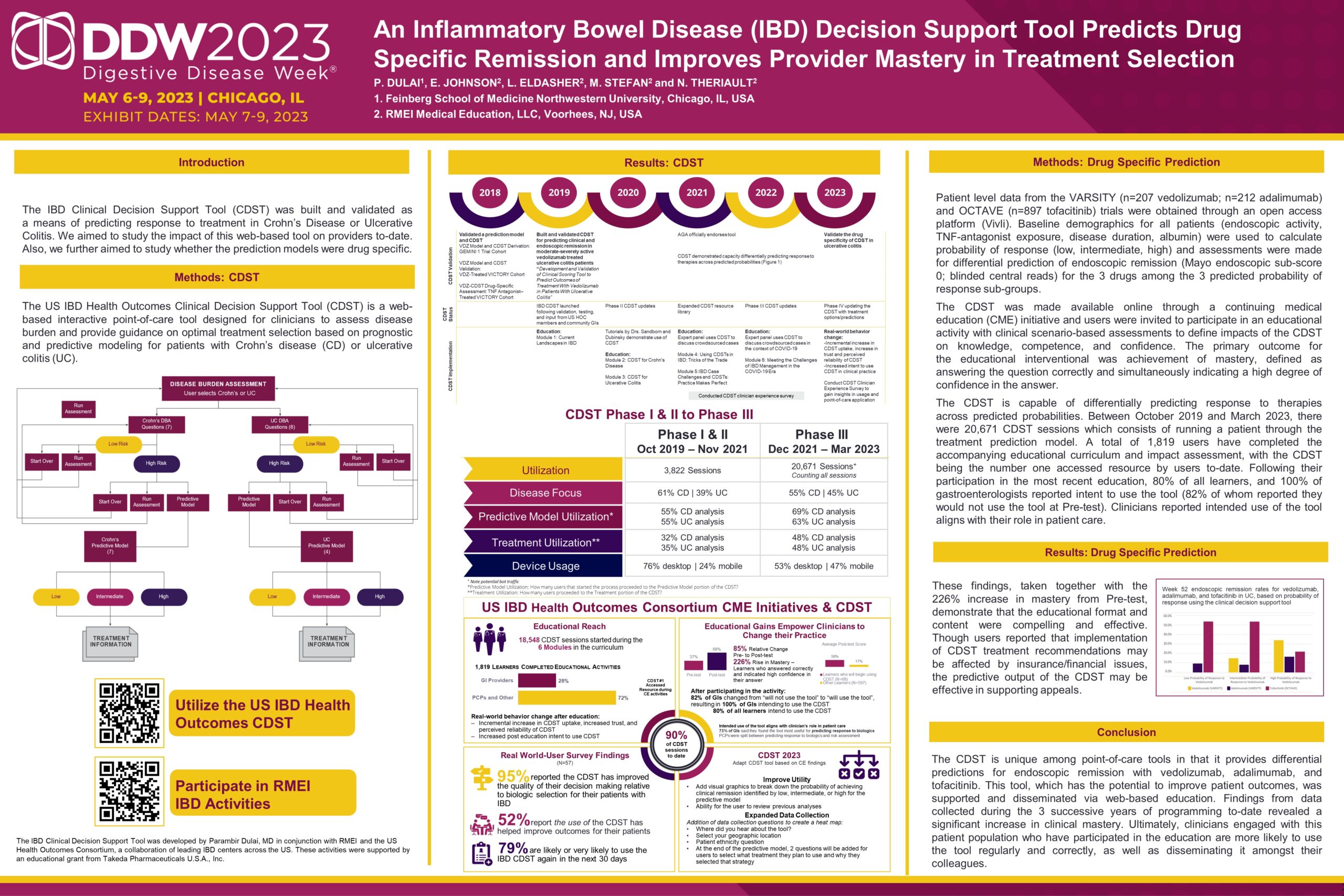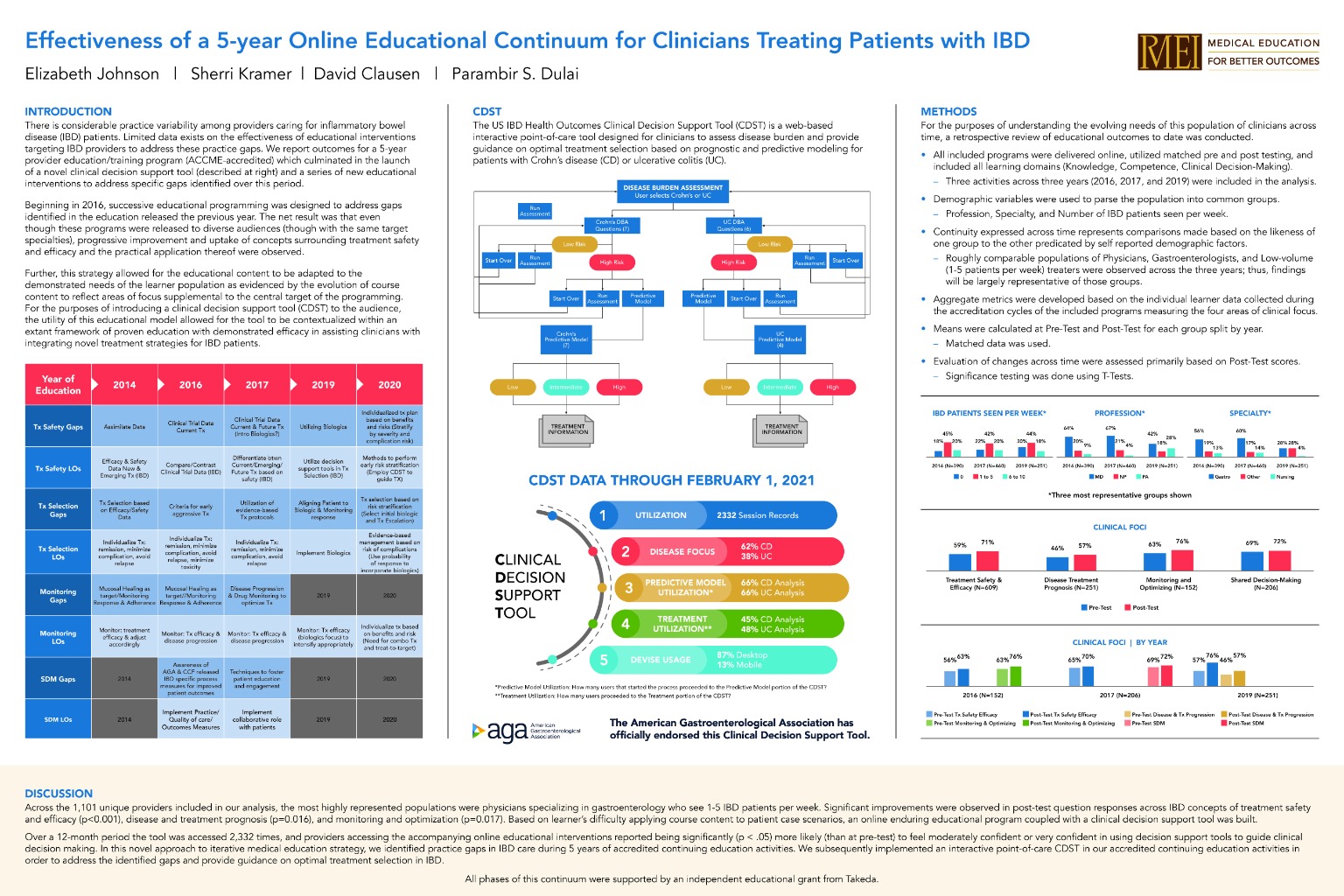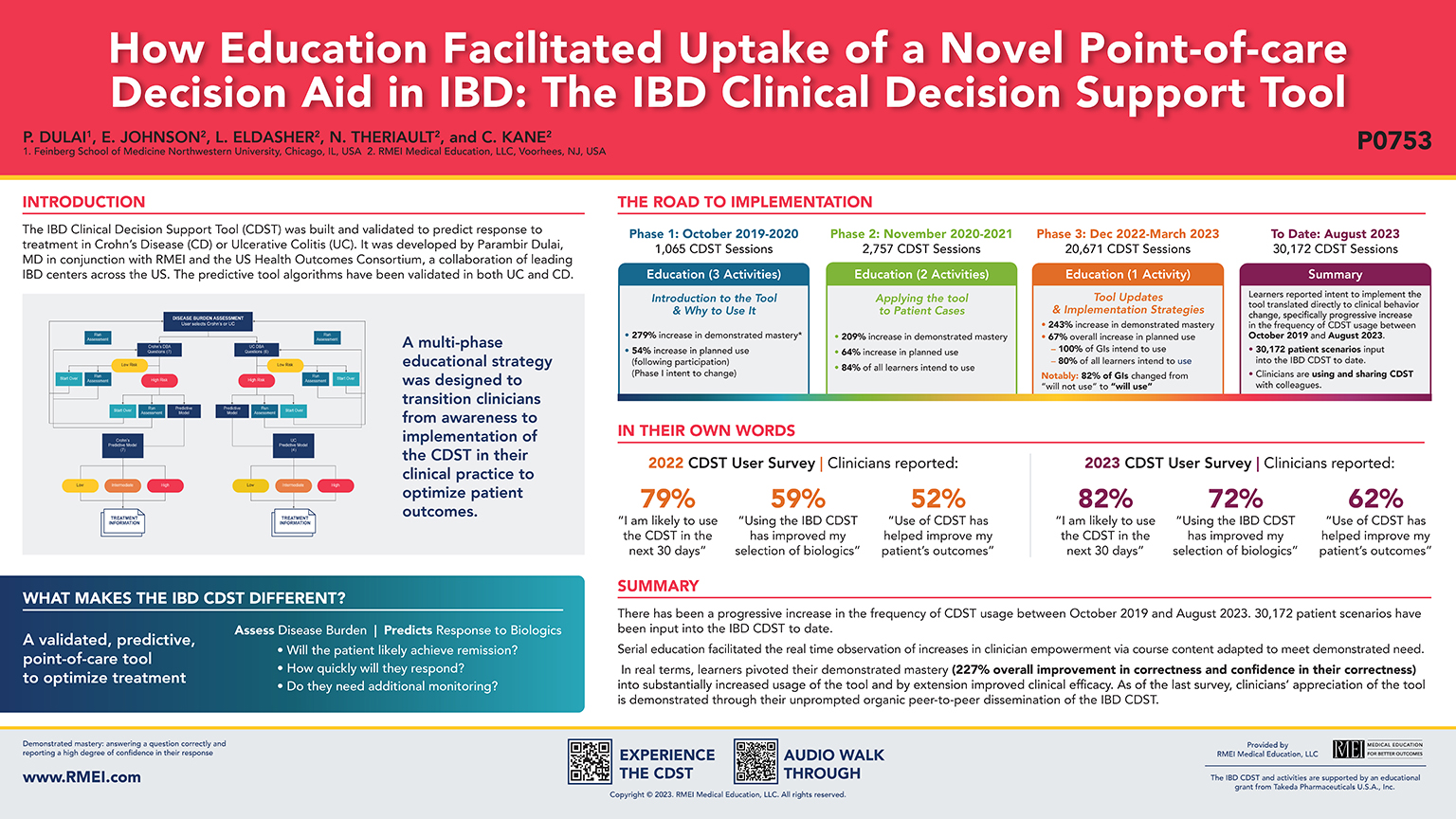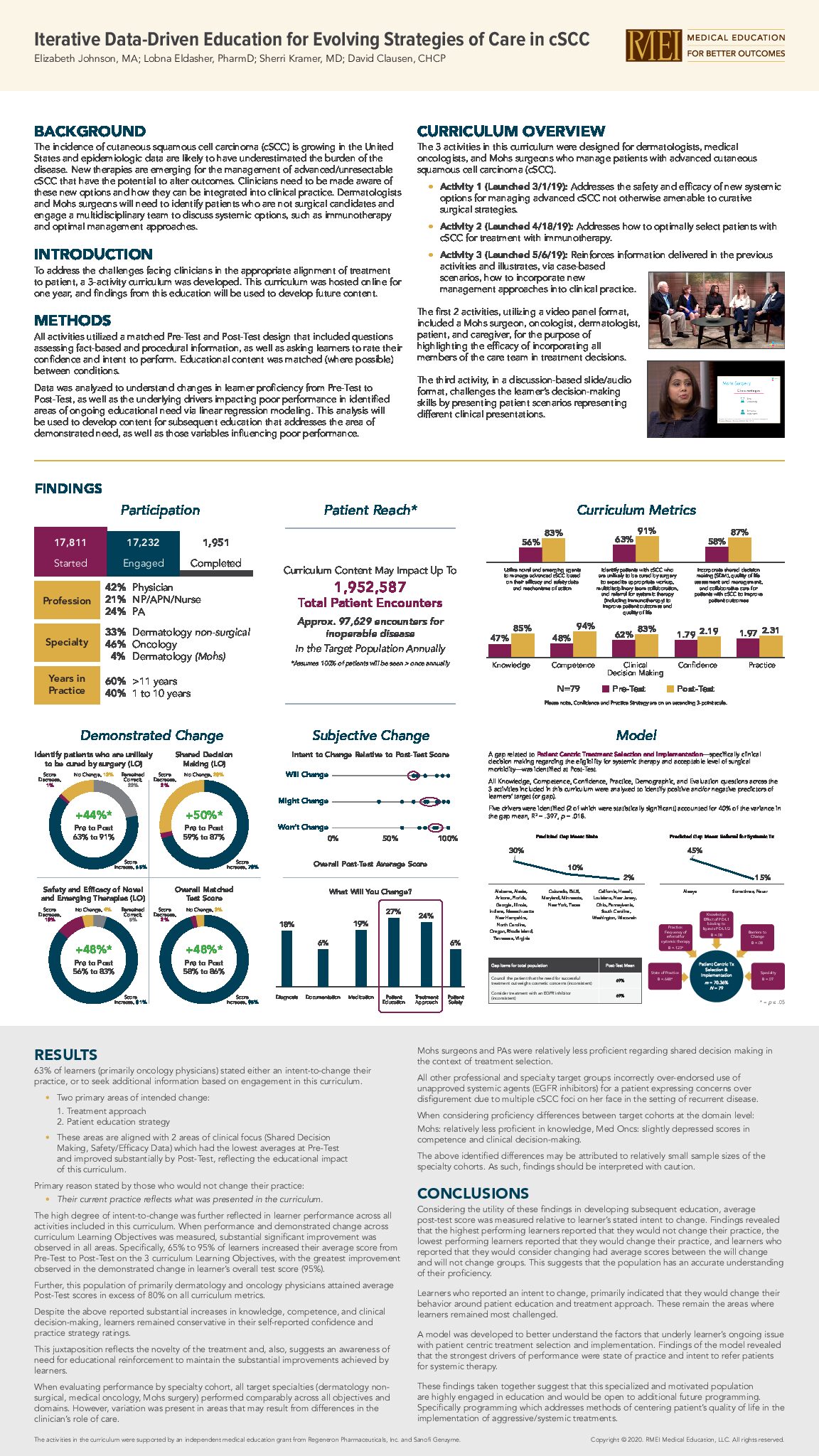4 Years, 16 Live & Online Activities, 6000+ Clinicians: What we’ve learned so far
RMEI has released pairings of live and online programs approximately twice per year since 2016 grouped into “phases” which share clinical areas of focus and are based on findings from the previous phase of education. In total, 16 activities have launched to date with 4 activities currently live. The purpose of this analysis is to better understand the impact of multi-year iterative education on a clinical audience.
Research with Preliminary Data – research projects that have collected data and are in the process of analyzing that data against the project’s hypothesis or objectives.
Presentation Year: 2021
Presented at: Accreditation Countil for Continuing Medical Education (ACCME), Society for Academic CME (SACME)
- Allergy & Immunology
- Presented 2021

